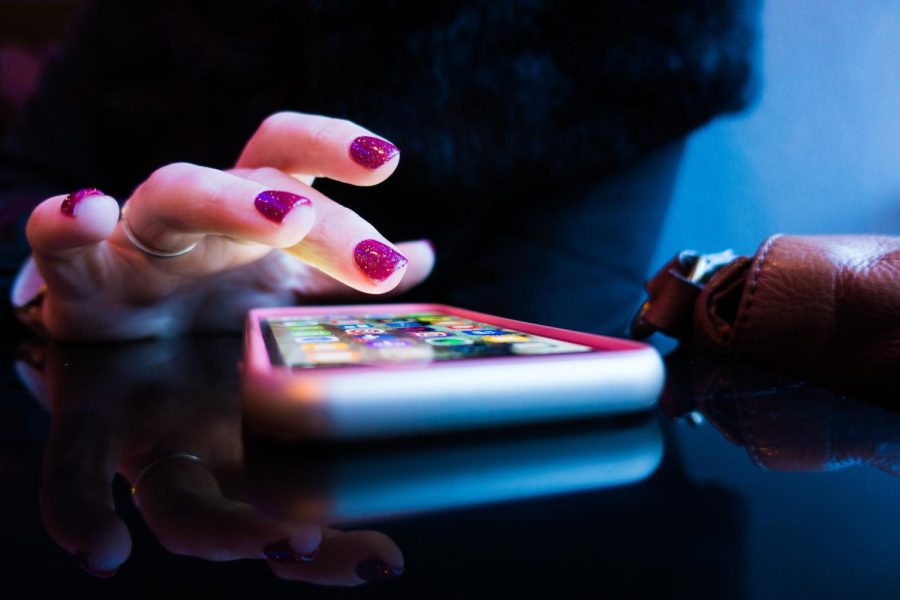Koemp: Social Media Can Create Unhealthy Space for Young People
Cellphones and the internet have many advantages, but they can also negatively impact young people’s mental health.
March 7, 2023
WOODBURY — Technology is everywhere. According to a recent poll from the National Center for Education, 94% of teenagers have a smartphone.
The internet has many good aspects and gives people room for self-expression, creativity, and learning about new topics, but there are certainly aspects that can harm anyone — especially young people.
Social media is a great place to meet new people and gain new perspectives, but sometimes it can feed into ideas that are not healthy for a lot of people. An example of this is how photo filters and other people’s opinions can affect someone’s body image.
“We are treating our bodies like fast fashion instead of something we need to live,” Woodbury Middle School sixth-grader Brooks Lavertue said.
Photo editing and unrealistic standards that are overwhelmingly present on social media create an unhealthy space for many.
“When people can’t be the same as who they see online, even if the photos are heavily edited, they end up looking down on themselves,” eighth-grader Hannah Keating said.
The internet is an opinion-diverse place, which has helped people become more empathetic and socially aware, but it can also cause the opposite outcome for some.
It is normal for people to pick up traits from those close to us, and usually these are positive. Examples of positive traits picked up are how you speak, your style and your humor. But along with those positives, there are unhealthy traits that can be easily picked up from the internet, like bullying, low confidence, and lack of empathy.
People are used to seeing tragic events while scrolling through their phone, but is that really healthy? Scrolling from a happy video, like a dog playing outside, to a video of someone who is dying causes you to not fully experience emotions and switch emotions easily without much thought. This is an important issue because changing moods rapidly has been known to cause higher depression and anxiety rates in teenagers.
There can be physical downsides to overuse of social media, too. Many kids grow up with their parents telling them to not sit close to the TV screen so you don’t hurt your eyes. While that advice is usually disregarded, there may be some truth to it. Prolonged use of devices is known to cause eye strain, lack of exercise, obesity, neck and back pain, and headaches.
Social media can be used almost anywhere for anything. Unfortunately, this can cause many issues if someone is being threatened or otherwise harmed. They feel like they can’t report it to authorities because of some apps letting the sender know about screenshots and other ways someone can potentially report an issue.
“Some social media apps like Snapchat where the texts disappear and show [notifications] when screenshotted can cause people to feel uncertain about reporting something that would need to be [reported],” said Aimee Shuhart, a WMS faculty member.
While technology has allowed us to connect with people in ways that would have almost never been possible before, and it can help us understand new ideas and perspectives, there are still effects that can harm the students and teenagers who use the internet regularly.
Some things you can do to limit these effects without having to remove devices completely out of your life are cutting down on screen time, turning down the brightness on your screen, using fewer apps that affect your confidence and mental health, and reporting those who could be harming you or someone else.
This is the opinion of Paloma Koemp, a Woodbury Middle School eighth-grader writing for the Junior Chief Advocate.


















